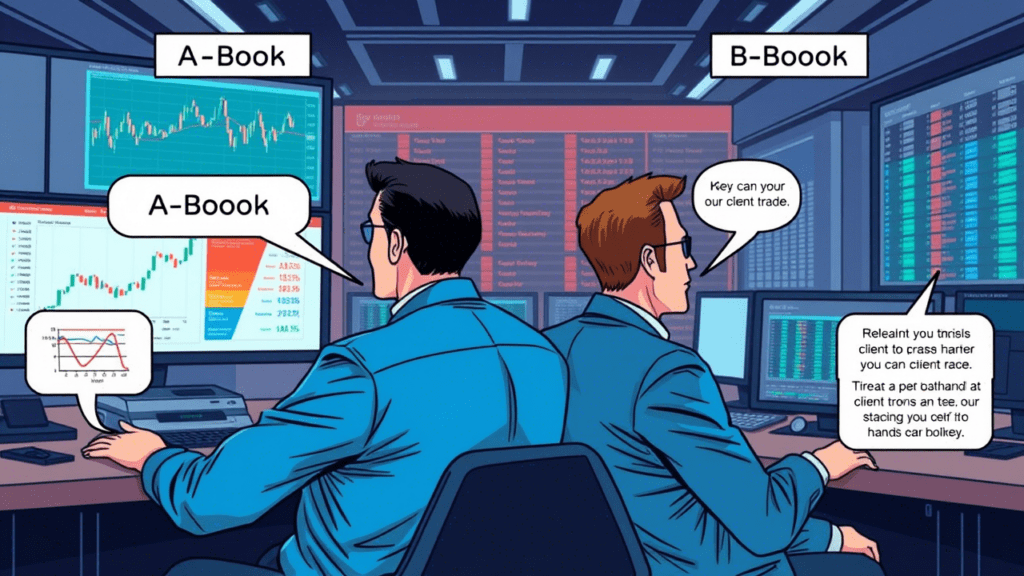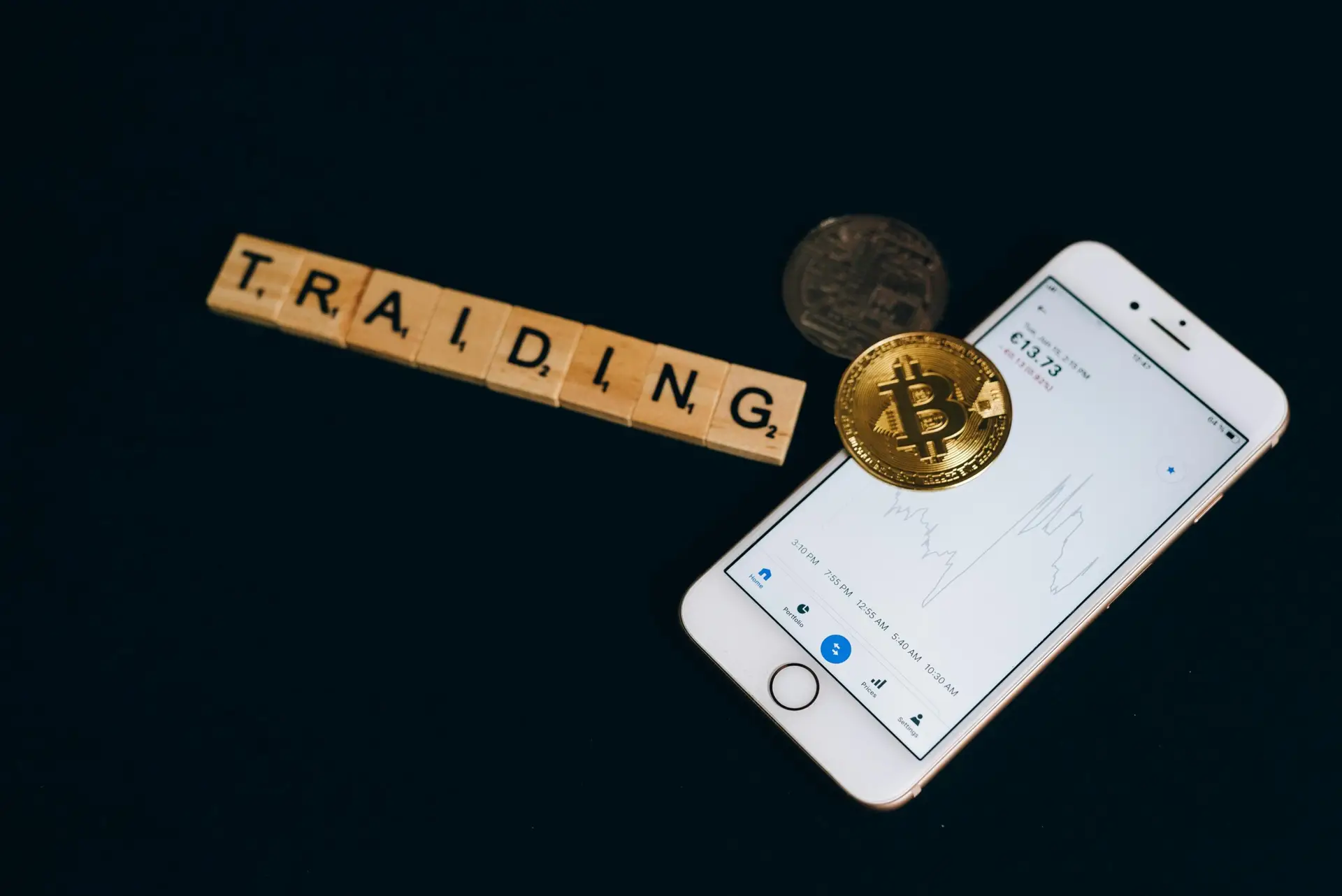Introduction
If you’re new to forex trading, you’ve probably heard terms like “A-Book” and “B-Book” brokers but aren’t sure what they mean—or why they matter.
The truth? Your broker’s booking method can significantly impact your trading experience, from execution speed to potential conflicts of interest.
In this guide, we’ll break down:
✅ What A-Book and B-Book trading mean
✅ How brokers profit from each model
✅ Which one is better for beginners
✅ Red flags to watch out for
Let’s dive in!
What Are A-Book and B-Book Brokers?
1. A-Book Brokers (Agency Model)
A-Book brokers pass your trades directly to liquidity providers (big banks, hedge funds, or other traders). They make money through commissions or markups on spreads, not from your losses.
🔹 How It Works:
- Your trade goes to the interbank market.
- The broker acts as a middleman, earning a small fee per trade.
- No conflict of interest—they profit whether you win or lose.
Best For:
✔ Scalpers & high-volume traders
✔ Traders who want no dealer intervention
2. B-Book Brokers (Market Maker Model)
B-Book brokers keep your trades “in-house”—meaning they take the opposite side of your trade. If you lose, they profit; if you win, they lose.
🔹 How It Works:
- The broker acts as your counterparty.
- They may manipulate spreads, slippage, or requotes to increase their edge.
- Common with offshore or unregulated brokers.
Risks:
❌ Potential conflict of interest (broker benefits from your losses)
❌ Possible manipulation (stop-hunting, requotes)
Best For:
✔ Beginners with small accounts (some offer fixed spreads)
✔ Traders who don’t mind slightly slower execution
Key Differences: A-Book vs. B-Book
| Feature | A-Book Broker | B-Book Broker |
|---|---|---|
| Trade Execution | Sent to liquidity providers | Kept in-house |
| Profit Source | Commissions/spreads | Client losses |
| Conflict of Interest? | No | Yes |
| Spreads | Variable (tight) | Fixed (sometimes wider) |
| Slippage | Possible (due to market conditions) | Controlled by broker |
| Best For | Professional traders | Beginners with small accounts |
Which One Should You Choose?
✅ A-Book Brokers Are Better If You:
- Trade high volumes
- Need fast, transparent execution
- Prefer ECN/STP models (e.g., FBS, IC Markets, Pepperstone)
⚠️ B-Book Brokers Can Be Okay If You:
- Are a beginner testing strategies
- Want fixed spreads (but watch for manipulation)
- Use a well-regulated broker (avoid shady ones!)

A-Book or. B-Book Brokers?
Red Flags: How to Spot a Shady B-Book Broker
Some brokers pretend to be A-Book but secretly run B-Book operations. Watch out for:
🚩 Too-good-to-be-true bonuses (they want you to lose)
🚩 Frequent requotes & slippage (broker interference)
🚩 Unregulated brokers (no oversight = higher risk)
Pro Tip: Check broker reviews on ForexPeaceArmy or Trustpilot before depositing!
Imagine This: You Win, But Your Broker Loses…
You just nailed a perfect EUR/USD trade. +200 pips! But then…
❌ Your order takes 5 seconds to fill (when markets are fast)
❌ Your stop loss gets hit 3 pips early
❌ The spread suddenly widens to 10 pips on news
What’s really happening? Your broker might be playing B-Book games.
Let’s break it down like you’re learning forex from scratch—no jargon, just real talk.
A-Book vs. B-Book: The Casino vs. The Stock Exchange
Think of forex brokers like two types of gambling venues:
A-Book Brokers = The Stock Exchange
- They’re just matchmakers between you and big banks.
- Example: You buy EUR/USD → They find someone selling it.
- They earn a small commission (like a ticket fee).
✅ Fair Play: No conflict—they profit even if you win.
✅ Best For: Day traders, scalpers, anyone trading >5 lots/month.
Real-World Example:
“When I switched to an A-Book broker (like FBS), my slippage disappeared. Trades filled INSTANTLY during NFP!” – Reddit user @FXTrader2023
B-Book Brokers = The Casino
- They become the house—your win is their loss.
- Example: You buy EUR/USD → They take the opposite side.
- They profit when you lose, overtrade, or get stopped out.
⚠️ Risky Play: Some tweak prices to trigger your stops (more on this later).
⚠️ “Good For”: Absolute beginners with $100 accounts.
Shocking Example:
“My broker gave ‘free bonuses’—then my trades mysteriously reversed at breakeven 80% of the time!” – ForexPeaceArmy complaint
Sneaky Tricks B-Book Brokers Use (And How to Spot Them)
1️⃣ Stop Hunting: Your stop loss gets hit by a 1-pip “spike” that doesn’t exist on other charts.
2️⃣ Requote Scams: “Price changed—accept new rate?” (Spoiler: It’s always worse).
3️⃣ Bonus Traps: “Get 100% deposit bonus!” (But you can’t withdraw until trading 10,000 lots).
4️⃣ Fixed Spreads That Lie: Claims “1-pip spreads” but secretly adds 3 pips via “execution fees.”
5️⃣ Withdrawal Holds: “Verify your ID again…” (While your winning trades expire).
Pro Tip: Search “[Broker Name] + scam” on ForexPeaceArmy before depositing!
Should Beginners Avoid B-Book Brokers Completely?
Not always—but caution is key. Here’s when B-Book might be okay:
- You’re trading a $50 demo account to learn.
- The broker is regulated (FCA, ASIC, not some offshore island).
- You avoid bonuses and trade major pairs only.
Better Path: Start with a hybrid broker like FXTM that shifts you to A-Book as your volume grows.
Steps to Check If Your Broker is B-Booking You
1️⃣ Test Slippage: Place tiny trades during news—real A-Books show real market chaos.
2️⃣ Compare Charts: Check if your broker’s “spikes” appear on TradingView.
3️⃣ Withdrawal Test: Try withdrawing $100 profit—see how fast/easy it is.
The Ugly Truth No One Tells Beginners
“Most ‘beginner-friendly’ brokers use B-Book because 90% of traders lose. They design platforms to encourage overtrading.” – Former Broker Employee (Anonymous)
Your best defense? Trade like a pro from Day 1:
- Use tight stop losses (so they can’t hunt you).
- Avoid exotic pairs (where manipulation is easiest).
- Withdraw profits monthly (don’t let them “claw back” your wins).
Final Verdict: Should Beginners Avoid B-Book Brokers?
Not necessarily—but caution is key. If you’re just starting, a regulated B-Book broker with fair conditions can be fine.
However, as you grow, switching to an A-Book/ECN broker will give you better execution, transparency, and long-term success.
📌 Key Takeaways
✔ A-Book = Trades go to the market (better for pros).
✔ B-Book = Broker is your counterparty (riskier but common for beginners).
✔ Always trade with regulated brokers to avoid scams.
Remember: ‘No spread’ doesn’t mean no risk. If your broker is a market maker (B-Book), they have every incentive to manipulate your trades.
🕵️♂️ Protect yourself: Understand how brokers profit with our breakdown of Forex Brokers Hate This: The Dirty Truth About Zero Spread Trading.
💬 What’s your experience with A-Book vs. B-Book brokers? Comment below!





